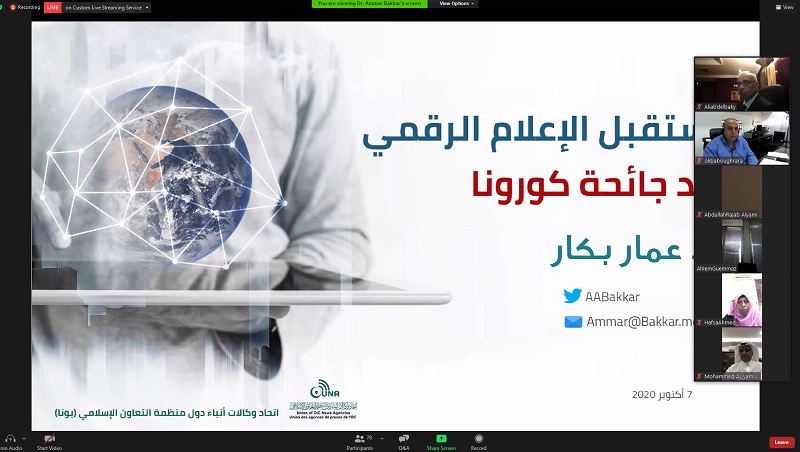virtual workshop organized Wednesday by the Union of OIC News Agencies (UNA) warned of the pandemic of misinformation, which leads to fake news industry, stressing the seriousness of the profound impact of fake news on the future of media and digital citizenship.
The workshop, entitled “The Future of Digital Media Post Coronavirus Pandemic”, was held in partnership with both the Information Department of the Organization of Islamic Cooperation (OIC) and the Islamic Broadcasting Union (IBU). It was held with the participation of more than 150 media professionals from member news agencies, staffers of radio and TV corporations, as well as journalists working for newspapers and electronic platforms in the Islamic world.
The workshop addressed the future of radio and government media, pointing out that the government media can provide a message and special service that is not affected by commercial factors and problems of the advertising industry.
The workshop was administered by the Saudi digital media expert, Dr. Ammar Bakkar, in Arabic accompanied by a simultaneous interpretation into English and French. He confirmed that crises tend to accelerate the trends of change, and that the biggest winner from the pandemic is the digital media, as there has been substantially increased consumption of digital media news. The crisis also accelerated the plans to develop infrastructure and the fifth-generation (5G) on mobile phones and forced a radical change in people’s habits.
Bakkar explained that the period of the pandemic has witnessed a significant shift in technology dependency and the impact of social networks on the general public. He noted that studies have proven that many people’s behavior during the pandemic depended on imitating what people do on social networks, and the pandemic period also saw a rise in digital media with the people’s need for information, where demand for video and video-on-demand has massively increased, while traditional media has seen a sharp decline.
The lecturer listed six fundamental changes in the media industry during the pandemic: (1) the broad economic impacts; (2) the increased distance media work, with the coming into being of new forms of TV software that merge appearance from home with video chat technology; (3) the rise of data and graphics journalism, where the urgent need for automated fact-checking or information-checking systems has emerged in light of the presence of a huge amount of misinformation, as well as the emergence of software to deal with huge amounts of information using artificial intelligence; (4) the increased focus on the local community; (5) the emergence of proactivity and reactivity approaches; and (6) the emergence of more choices and rapid audience change.
Dr. Bakkar talked about what will change the media in the future, pointing to the erosion of major media outlets and the “factors of fragmentation”. He said influence is the most important media commodity in the 21st century, in addition to the influence networks, the rise of individual media as media institutions are gradually transformed into football clubs, and the rise of credibility.
The lecturer addressed the elements of the future success of the media organization including influence and credibility, the rise of social responsibility, and the transformation of TV channels into institutions to produce original content. He cited the story of Disney, which was able to reproduce itself on digital platforms because it owns content to compensate for its losses from the entertainment sector, as it announced a new milestone for its Disney Plus that reached 50 million subscribers in five months instead of 4 years as per the original plan.
Bakkar touched on the future of radio and government media, spelling out that government media can provide a special message and service that is not affected by commercial factors and the problems of the advertising industry, and that government media may be able to raise its credibility as a source of reliable government information.
The expert also talked about the issue of media falsification and the post-truth era, referring to what he called a pandemic of misinformation, the evolution of news falsification and its profound impact on the future of media and digital citizenship, as well as how the media benefit from falsification of news.
Bakkar further talked about media and artificial intelligence, automation, content-writing robots, data journalism and virtual reality. He reviewed the future of commercial media (Business Model) with its terms such as targeted advertising, the use of artificial intelligence and advertising in the age of fragmentation, which is an advertisement that achieves rapid digital results and an impact on the mental image (Branding).
Furthermore, the lecturer talked about the impact of credibility in advertising, partnership with advertisers, and helping international advertisers in reaching the local community, content marketing, advertising world for everyone, and paid media. He noted that digital service subscriptions in the United States included video-on-demand services, on-demand music services, video game services, and audiobooks.
The workshop witnessed several interventions by the participants, most of which focused on the role of government media, the level of credibility in the media, and future prospects in light of the current media challenges.
Bakkar emphasized the ability of government media, as a reliable source of accurate information, to survive and continue, pointing out that this was revealed by the media performance during the coronavirus pandemic.
He called on state media institutions to move away from traditional methods of work, indicating that the possibility of benefiting from the distance work policy, as it allows contracting with distinguished cadres without incurring high material costs.
On credibility, Bakkar noted that the space is open to reliable news and fake news, and the only solution is to make the necessary effort to educate the public about the facts.
The Saudi media expert urged distinguished people in the content industry to take advantage of social media to publish accurate and credible works, as they would be a target for attraction by major media organizations.
With regard to the crises experienced by many major media organizations due to the digital revolution, Bakkar explained that the solution is to build alliances that increase the factors of strength and address the problem of resources, take care of credibility and create new and distinguished content.
The Future of Digital Media workshop comes within the outcomes of the Union’s virtual media forum, held on 16 May 2020, under the patronage of the Acting Saudi Minister of Media, Chairman of the UNA Executive Council, Dr. Majid bin Abdullah Al-Qasabi. The Forum was held under the theme “The role of news agencies in supporting efforts to combat coronavirus”, during which the Union’s training program aimed at developing the capabilities of 2,200 media professionals in the OIC countries was launched.
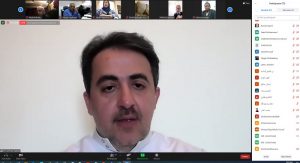
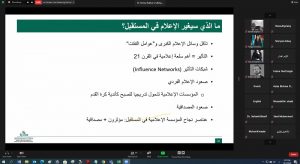
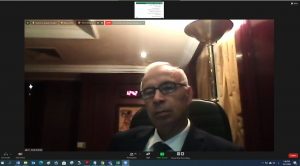
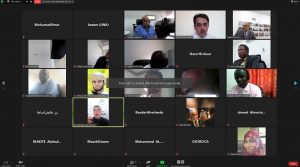
@OIC

